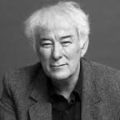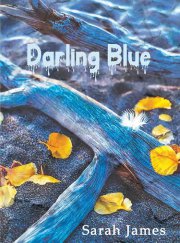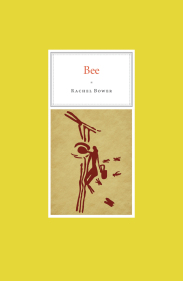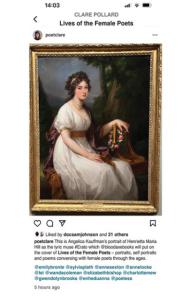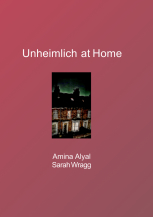
SEAMUS HEANEY (1939-2013)
In the forest of poetry the great oak has fallen.
Tony Curtis
An Appreciation of Seamus Heaney, 1939-2013 by Rose Atfield
Grandad's Trowel - A Tribute to Seamus Heaney by Maria Chippendale
Someday Never Comes by Robert Klein Engler
Leavetaking by Kim Fahner
White Hair by Norton Hodges
On the Final Days of a Danish Coastguard by Gregg Murray
ROSE ATFIELD
An Appreciation of Seamus Heaney 1939 – 2013
Generosity, in all its forms, was the essence of Seamus Heaney and continues to be so.
Once a poem was written and he felt it was finished, Heaney described it as if it had been pushed beyond the intimate boundaries of the self and cast off into the outside world for readers, critics and even politicians, to make what they wished of it. In an interview he talked memorably of not resisting readers 'reading things in' to his poems but encouraging their 'reading things out' of them. He used the appropriate analogy of a commentator on a football match, to confound the ubiquitous question of how a reader can know what the poet 'meant' : the footballer kicks a goal or makes a particular move and shot and much of the action is spontaneous, learned but not conscious; it is the commentator who can relay the movements in slow motion and indicate what preparatory actions were employed and how the resulting achievement was plotted.
Similarly, Heaney suggested, the poet is not necessarily conscious of the infinite varieties of connotations his words may have for different readers; he has used specific words in a particular order but may not have been conscious of every layer of potential meaning. In a sense the published poem is no longer his, it belongs to the wider public of his readership. He has spoken of the completion of a poem freeing him from responsibility for it; whatever it was within the individual consciousness that initiated the work, once 'out there' it is detached, can be read objectively, as the initial impetus has been superseded. Thus he avoided self-indulgence, despite the majority of his poems having their source in his own childhood, background and experience.
This enabled his exceptional skill in creating a concrete image for the most abstract and potentially abstruse philosophical deliberations: they are harnessed to the ordinary and the everyday; anchored to a homely, identifiable emotion or universal human experience. This is what makes his poetry essentially Jungian – he has an intense awareness of the concept of the collective unconscious and of archetypal imagery, which renders his most recent poetry as accessible as his earliest. Even though his later poetry, perhaps from Fieldwork onwards, has increasing reference and allusions to mythological and other literary intertextuality, there will always be a description or an image which has the simplicity, clarity and directness of 'first speech', which connects with the child in the poet and reader.
Heaney did not write consciously experimental poetry, or contribute to the avant-garde; he felt much more that a poem which goes beyond the expected, takes the poet into a realm which is an extension of his own, is experimental in the best way for his own poetic practice. Form for Heaney was the skeleton of a poem but it must have muscle for movement and flexibility. He frequently used traditional forms such as sonnets, couplets, quatrains, but reworked them with freer, more malleable variations which reflect the voice of the poet, the cultural and original speech intertwined.
He made most use of the unrhymed quatrain; he used half-rhyme in a range of poems which increases the openness of the ideas and descriptions deployed, avoids categorical or dictatorial statements. Within his output there is a predominance of lyric poems; however there are also sonnet sequences, prose poems, a sestina, unrhymed poems in sections, parables and an increasing number of translations.
In his first four collections, the poems often closed neatly and compactly, the first part of North, with its longer length yet shorter lined forms, reflected the archaeological and prehistorical qualities of the poems and visually conveyed the concept of digging down below the surface both of land and consciousness. In the second part and in Fieldwork he lengthened the line, exploring the expansiveness of emotion and more contemporary settings. He has referred to wanting to develop more clarity and a plainer style after the richness and density of the physicality in his earlier volumes.
In Seeing Things, there was a definite sense of looking back over his work and reinventing himself; his parents' deaths, the purchase of the Glanmore cottage and his fiftieth birthday all spurred this reflection and renewal. A visionary, more spiritually informed quality combined with spontaneity in the "Squarings" sequences, a splendid outpouring of twelve-lined poems, each with a solid connection to the earthy and the everyday, yet also reaching out and beyond to the upper air and the spiritual dimension. The airiness and abandon is nevertheless reined in by the skilful patterning, of 48 poems, four groups, of twelve times twelve lined poems!
The four collections following show Heaney concerned to 'rise to [his] own occasion', to sustain the stamina of the poet moving into older age, as he recognised Stevens, Yeats, R.S.Thomas and Milosz had done. Maintaining his momentum became contemporaneous with the politicians' maintaining of the Peace Process, although he felt that peace in Northern Ireland is probably more piecemeal than the term process would suggest.
His interest and respect for eastern European poets such as Milosz, Holub and Brodsky, which is evident in poems in the last four collections, is related to their sustained ability to live in both public and poetic realms and to maintain their poetic integrity. In Electric Light Heaney used the classical form of Eclogues, and recalled in an interview his admiration for Virgil, conforming to the rigidity of this form yet simultaneously responding to his social and political circumstances.
In District and Circle and Human Chain, the variety and refreshing reworking of a wide range of forms continued, Heaney used sonnets, lyrics, poems in sections and sequences; translations and his most favoured form of the unrhymed lyric to great effect and with sophisticated yet always accessible imagery. The fluency and technical mastery of his later poetry never denies the innate sensuousness and generosity of his exploration of human experience.
In 2008, Heaney received the Cunningham medal, the highest honour of the Royal Irish Academy. The year was also notable for the publication of a wonderful series of interviews recording the poet's life and work, conducted by the late lamented Dennis O'Driscoll, and exhibiting yet again the enormous generosity of a poet whose mission was always to communicate and to offer his insights into the human condition in the most open and self-exposing manner, with humour and without embarrassment or self-inflation.
Heaney's development as a poet was a continuum – constantly reinvigorated by response to and enhancement of his own and others' work. The Eastern European poets, Brodsky and Milosz, contributed to this, as Heaney admired their tenacity and resilience in the face of state control and abuse of freedom. He has referred to the Russian Brodky's ability to represent, in his own artistic activity, the ability of poetic expression to expand and extend the restrictions and boundaries of the individual's perception. He also admired Brodsky's determination and complete certainty and confidence in the positivism of poetry; its enhancement of cultural wellbeing in both the personal and the public realms.
Milosz, from Lithuania, was fascinating to Heaney as he retained the influence of folk-culture and myth and the medieval apprehension of the numinous, as well as a modern understanding and awareness of the dangers of political and ideological extremism. Above all, however, Heaney has written of Milosz's fulfilment of the anticipation that poetry will enchant and appeal as well as educate. Thus throughout his development as a poet and his continuing contribution to artistic and aesthetic debate, Heaney's responsibility to the joy of art was paramount.
Heaney continued to contribute immeasurably to the world of poetry and its challenges, delights and consolations, publishing his twelfth collection, sadly now his last, Human Chain in
2010 and contributing yet again to a wide variety of events. In September 2013, three weeks after his
death, a literary festival in Derry celebrated his and others' contributions to the cultural life of Ireland and the world, appropriately entitled "On Home Ground", of which he had never, and would
never, lose sight. This turned into a bitter-sweet tribute weekend, celebrating Heaney's life and work with readings of other Irish poets' favourites of his poems, each clearly moved and honoured to
participate. He was to have been present to open that festival – he was, in spirit – and now he lies in his own home ground, in the churchyard at Bellaghy, by an old stone wall and shaded by a
sycamore tree.
Rose Atfield has worked in Higher Education for over 20 years, lecturing and writing on Irish literature, especially the work of Seamus Heaney and Eavan Boland. She established creative writing courses at Brunel University which have since attracted writers such as Fay Weldon, Celia Brayfield and Benjamin Zephaniah to the department.
MARIA CHIPPENDALE
Grandad's Trowel – A tribute to Seamus Heaney
Gentle tree-grain contours
Loved smooth
My grandfather's hand
His spirit
Present
His favourite trowel
Beloved to me
Reverently
Tending
Continuity
Born in Worcestershire in 1964, Maria Chippendale is, professionally a teacher, youth worker and counselor and a heart-filled mother, author, poet and philosopher. She has spent most of her professional working life within Children's Services in both public and voluntary sectors. As a writer she seeks to inspire; to create; to be alive in this transient stream.
ROBERT KLEIN ENGLER
Someday Never Comes
(Credence Clearwater Revival)
for Seamus Heaney
The Rabbis tell us that the evil inclination,
the yetzer hara, leaves the body after death.
Perhaps it is after the last warm, breath
or like the yellow leaves that already start
to fall to Weller Creek at the end of August.
After that we are left with a soul of bones,
like the ash and catalpa that will wave past
winter, half frozen into white like a stone.
It is possible to be alive and not love any
one, well, not anyone in particular like
the squirrel and sparrow who are driven
in the woods with a lost history of union.
And in the world to come, what is it that
remains if all that was essential to desire
is fallen away like the red leaves that fall
unto the lawn with the memory of fire?
Perhaps the soul of brother and sister is
as beautiful as it was before betrayal.
Maybe the letter that ends with the old
signature of "love" will call us back to a
pool where we were warm in our splash
and play. I don't know. The cottonwood
leaves dance in the breeze and billowed
clouds traverse the horizon as they should.
KIM FAHNER
Leavetaking
(for Seamus Heaney)
This afternoon,
in a beam of late summer light,
a sweep of starlings rose up
from the maple on the corner,
as if they knew you had left us ---
and could only follow
by taking flight,
beating wings in time
with my saddened heart.
Here, far across an ocean,
the leaves of late August ripple,
the birds stir feathers so that,
it seems, even the air currents
carry news of your going.
Your words,
which bluster and buffet the heart,
conjure western roads
overlooking a windy sea,
resurrect souls from turf,
speak of love and loss,
sustain me now.
On night walks,
crisp in fall, dogs at my feet,
I lift up my eyes,
searching out your star
for miracles and postscripts.
Kim Fahner writes and teaches in Sudbury, ON, Canada. She is a member of the League of Canadian Poets, The Writers' Union of Canada and PEN Canada. Her most recent book of poems is titled The Narcoleptic Madonna (Penumbra Press, 2012). Visit her blog here
NORTON HODGES
White Hair
i.m. Seamus Heaney
'Noli timere' (Don't be afraid)
In Japan the cherry blossom has come and gone
And in London the leaves have begun to fall
On SUVs, pavement cyclists, women
In fashionable monochrome walking home.
The clue is in the question: why is
My hair thinning at the front so that I can
See my scalp? Why do my knees ache?
Why did you find a white hair in my eyebrow yesterday?
There is a pleasure in every season for those
Who see beyond what they can control
And are willing to let the world be,
There is a pleasure in white hair and laughter lines,
In falling blossom and wind-scattered leaves,
And in these, our faces flushed with an autumnal glow.
Norton Hodges is the author of four volumes of poetry and seven translations. He has been widely published in English poetry magazines and on the internet and In 2005, he was awarded the Grand Prix International Solenzara by a French jury from the Institut Solenzara. He lives in Lincoln.
GREGG MURRAY
On the Final Days of a Danish Coastguard
When I was a coastguard, I queried
the longships. I knew the dire difference
between word and deed and did and
said the same thing. I scoured the crests.
I stuck to my king. It's a vicious task to,
in quiet, retire from the watch, but this night
a strange swallow latched to a crag,
pecking its neck like a nervous crook. I
stood blind to his entry. What sort of
sentry, staring into a black sea, could be
so lacking, that a forked tail could loop its
guard? And how heavy this sword, this need?
And of no use to my country and kin,
I stare at the spot a brave man has been.
Crafted on the Danish Coastguard from Heaney's Beowulf.
Gregg Murray is Assistant Professor of English at Georgia Perimeter College. He has recent poems in Horse Less Review, DIAGRAM, Caketrain, Interrupture, New South, elimae, The Denver Syntax, RealMandala, Alice Blue Review, Spittoon,decomP magazinE, LEVELER,[PANK], RealPoetik and Word For/Word. His chapbook ceviche is forthcoming from Spittoon Press 2014. Visit his website here
